This document summarizes the findings from the initial round of research on the development and piloting of two types of instructional tools designed to support teachers’ integration of the Common Core State Standards (CCSS) in literacy and math. In this interim report, Research for Action (RFA) presents key findings from the first half of the 2010-2011 school year in the following five categories: Literacy and math theories of action, Strategy for the development and implementation of literacy and math tools, Tool implementation and use, Sustainability, Recommendations.Most teachers agreed that the literacy tools were a good fit for their curriculum and students, and social studies and science teachers appreciated the opportunity to incorporate writing in their classes, though they were concerned about not leaving enough time to cover their content material. Teachers reported that using the tool provided them with valuable information about students’ reading and writing levels which then allowed them to plan their lessons more effectively. Most said that the tools increased student engagement in literacy learning. However, teachers had some difficulties with the format of the tool, experiencing confusion during their first time navigating it, and wishing for more flexibility to add to the text of assignments. Teachers struggled to differentiate instruction for ESL students and appreciated extra support when using the tool with special ed students.Most teachers thought that the math tools (the Formative Assessment Lessons, or FALs) were aligned to their curriculum and accessible to all levels of student skill level. All of the teachers reported that the tools provided them with useful information about the strenghts and weaknesses of their students, as well as serving as a strong and engaging model for teaching high school students. The robust implementation was hampered by the limited number of FALs available to each teacher. Teachers were not able to complete a FAL in one period, and reported that preparing the lesson was challenging and time-consuming.Most teachers in both literacy and math expressed a desire for more professional development, despite its interference with class time.
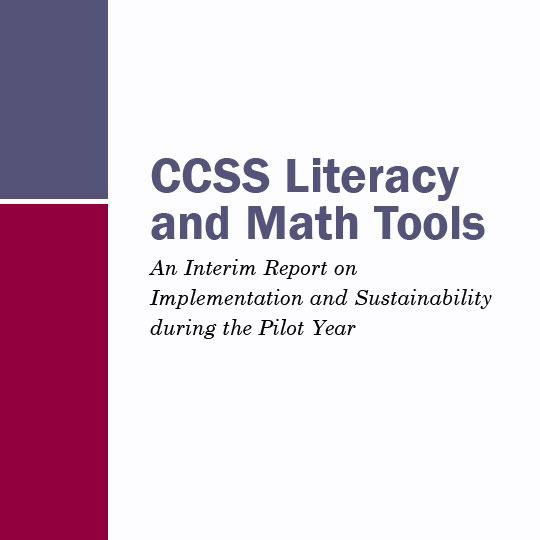
CCSS Literacy and Math Tools: An Interim Report on Implementation and Sustainability during the Pilot Year
Rebecca Reumann-Moore , Nancy Lawrence , Felicia Sanders , Jolley Bruce Christman
Date: March 2011
Related Publications
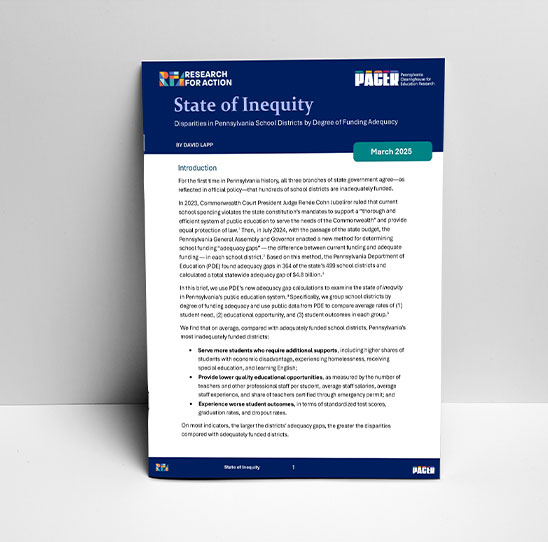
Publication
State of Inequity: Disparities in Pennsylvania School Districts by Degree of Funding Adequacy
David Lapp

Publication
Patterns of Student Mobility Among English Learner Students in Public High Schools in Philadelphia
Lindsey Liu, Sean Vannata
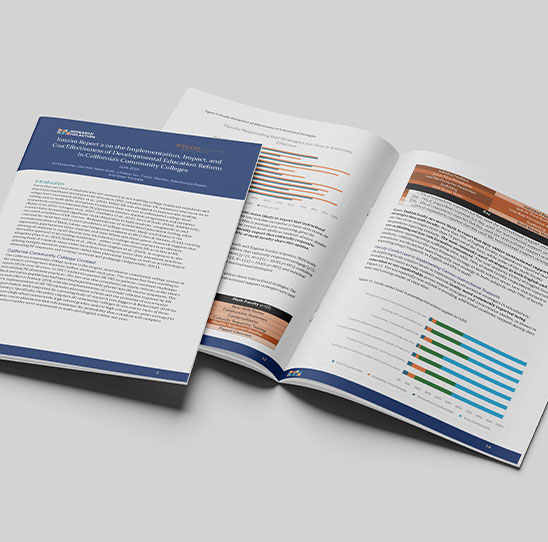
Publication
Interim Report 2 on the Implementation, Impact, and Cost Effectiveness of Developmental Education Reform in California’s Community Colleges
Kri Burkander, Dae Y. Kim, Mark Duffy, Lindsey Liu, Taylor Stenley, Keerthanya Rajesh, Sean Vannata
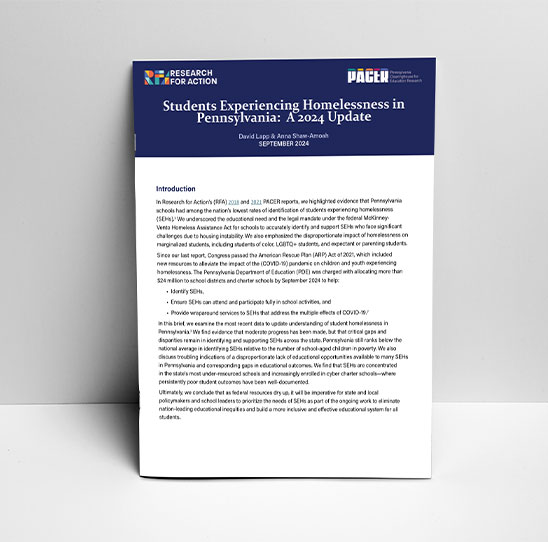
Publication
Students Experiencing Homelessness in Pennsylvania: A 2024 Update
David Lapp, Anna Shaw-Amoah

Publication
The When and How of Keystone Exams in the School District of Philadelphia
Molly Pileggi, Sean Vannata, Alyn Turner
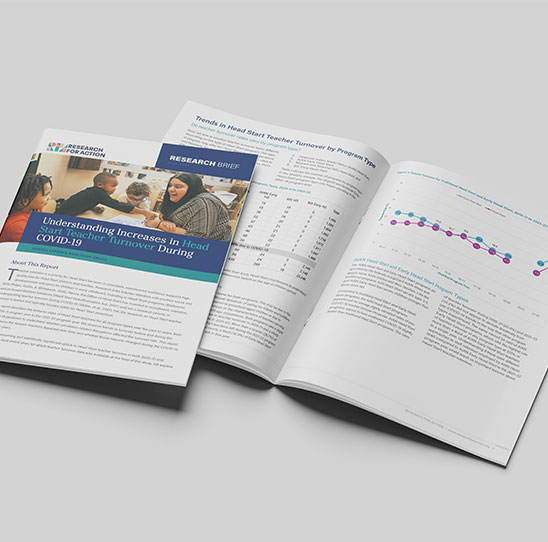
Publication
Understanding Increases in Head Start Teacher Turnover During COVID-19
Kendall LaParo, Anna Shaw-Amoah
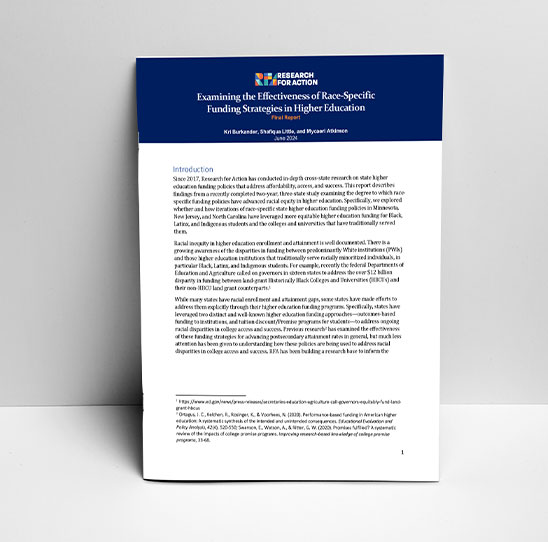
Publication
Examining the Effectiveness of Race-Specific Funding Strategies in Higher Education
Kri Burkander, Shafiqua Little, Mycaeri Atkinson
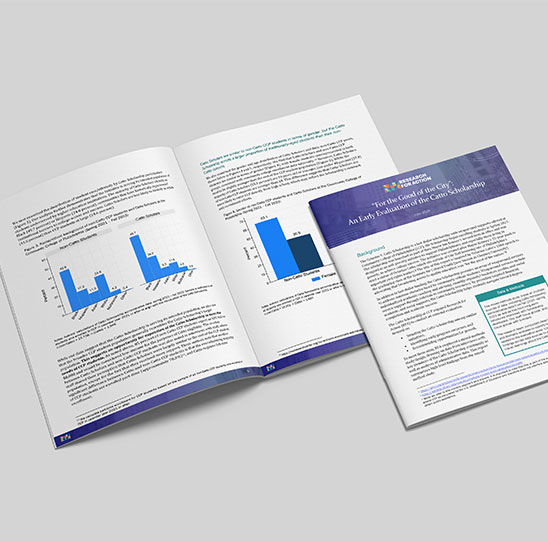
Publication
“For the Good of the City” An Early Evaluation of the Catto Scholarship
Kri Burkander, Karin Gegenheimer, Alita Robinson
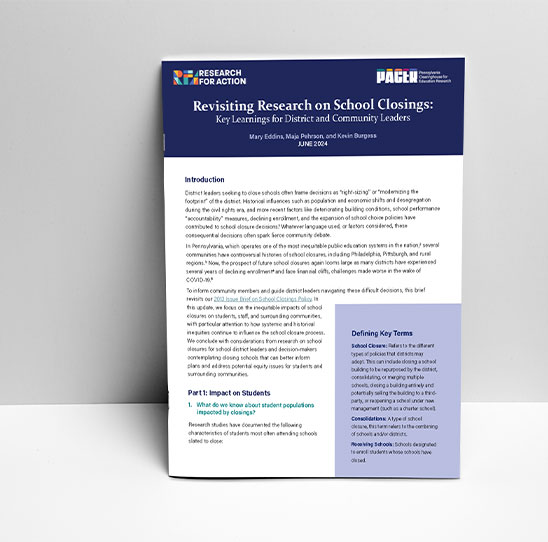
Publication
Revisiting Research on School Closings: Key Learnings for District and Community Leaders
Mary Eddins, Maja Pehrson, Kevin Burgess
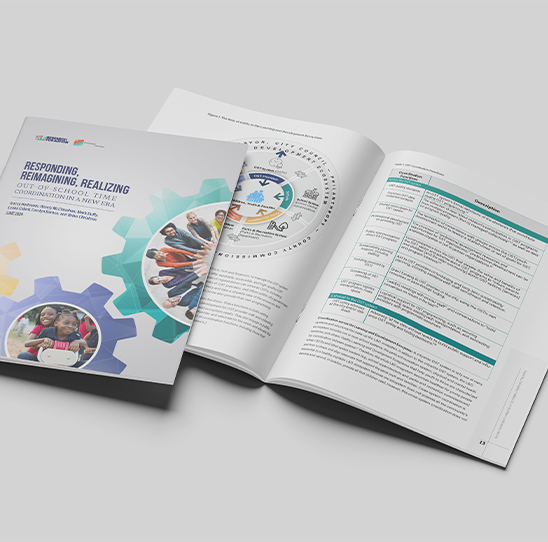
Publication
Responding, Reimagining, Realizing: Out-of-School Coordination in a New Era
Tracey A. Hartmann, Wendy McClanahan, Mark Duffy, Leana Cabral, Carolyn Barnes, Ph.D, Brian Christens, Ph.D
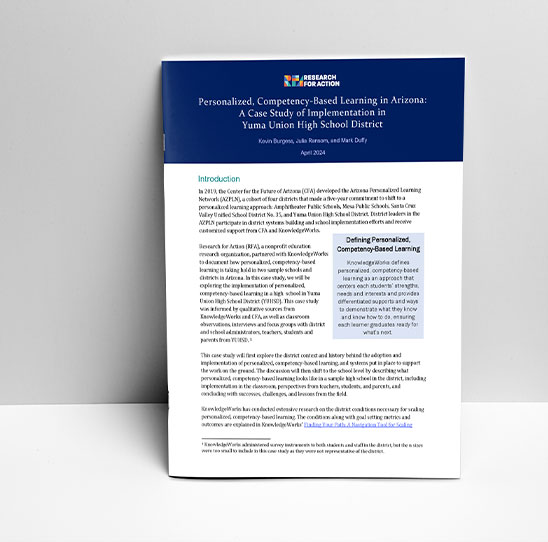
Publication
Personalized, Competency-Based Learning in Arizona: A Case Study of Implementation in Yuma Union High School District
Kevin Burgess, Julia Ransom, Mark Duffy
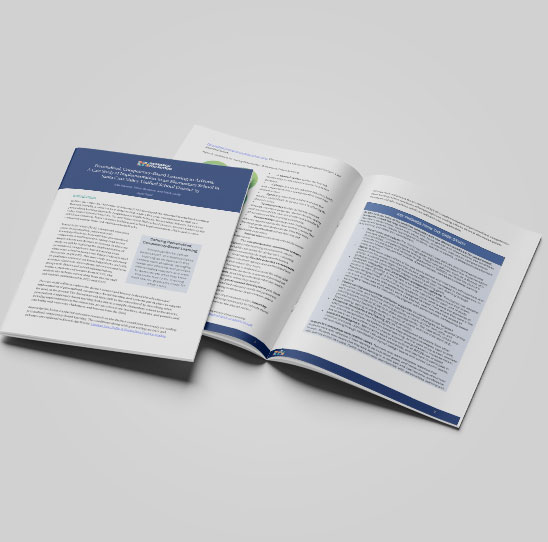
Publication
Personalized, Competency-Based Learning in Arizona: A Case Study of Implementation in an Elementary School in Santa Cruz Valley Unified School District 35
Julia Ransom, Kevin Burgess, Mark Duffy